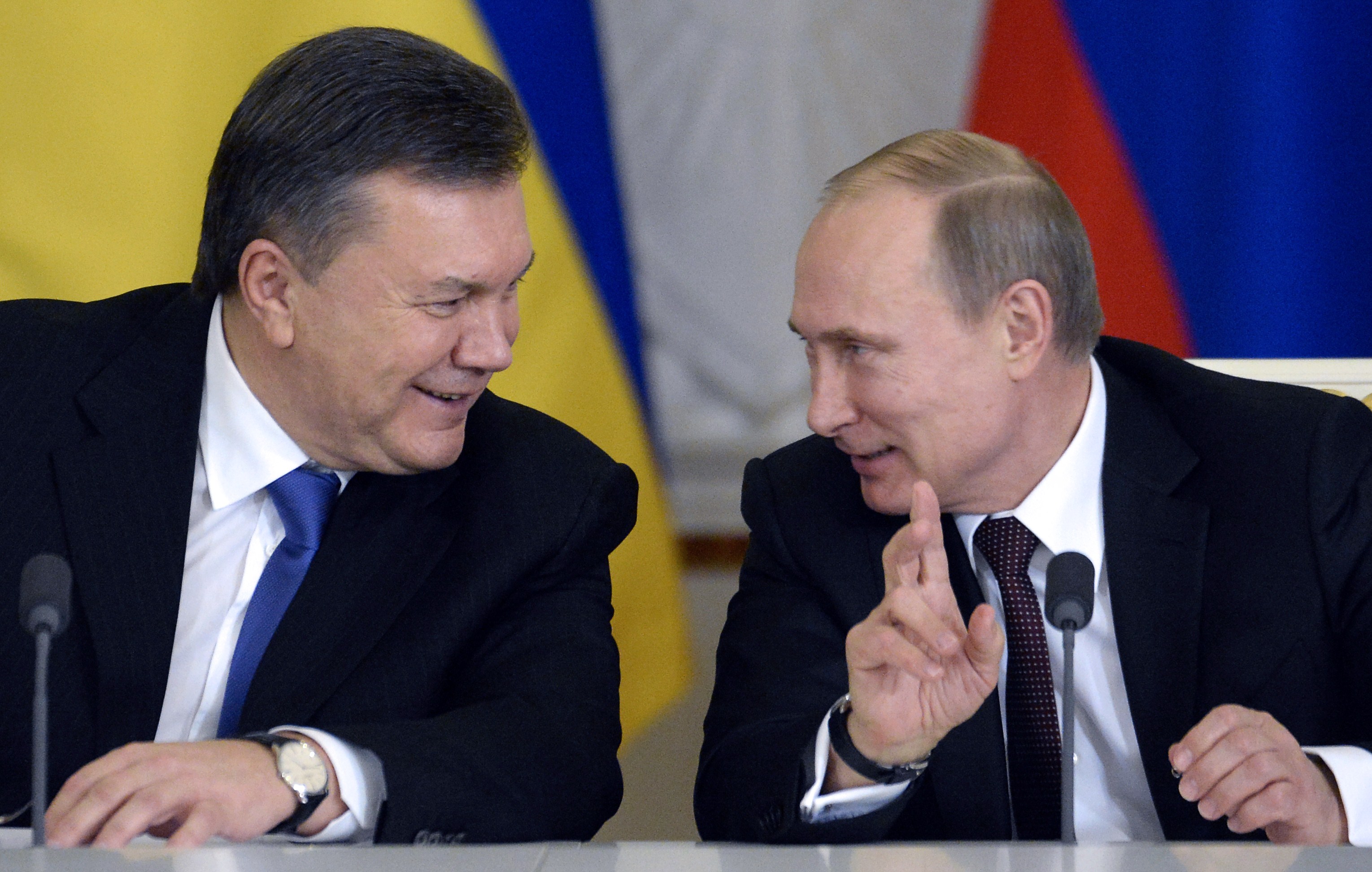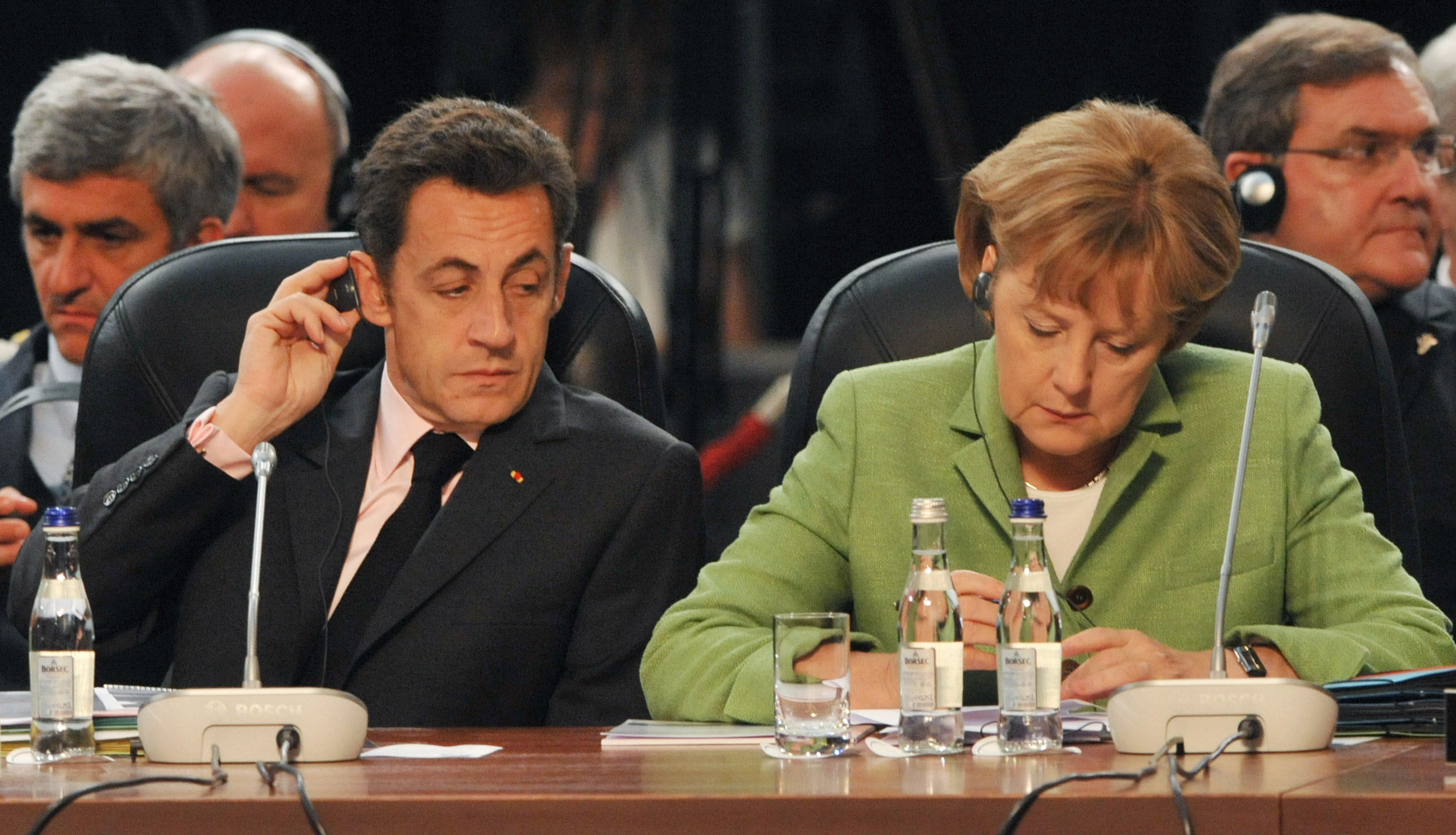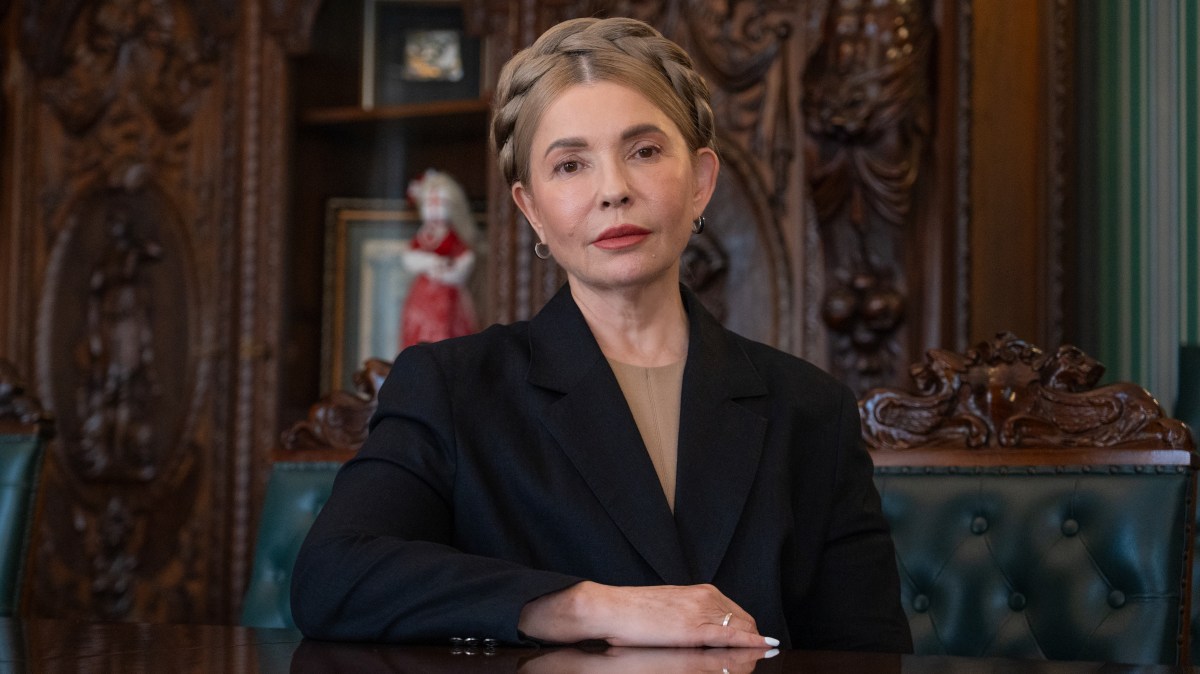The huge photograph at the entrance to Yulia Tymoshenko’s party headquarters in Kyiv shows her in the euphoric aftermath of the 2004 Orange Revolution in Ukraine, one hand in the air, the other clutching a bunch of flowers.
Within weeks of the revolution, which overturned election results that had been rigged in favour of Viktor Yanukovych, Moscow’s candidate, Tymoshenko became her country’s first female prime minister and Ukraine took a historic leap away from Russia’s influence and towards the West.
Twenty years on, Tymoshenko’s trademark blonde braids are still in place, yet her attitudes towards Kyiv’s western allies have hardened. While she still fully supports Ukraine’s bids to join Nato and the European Union, she is angry over the refusal to allow Kyiv into the western military alliance in the years before Russia’s full-scale invasion. She has also accused the West of taking advantage of the war to “undermine” Ukraine’s independence, even as Russian bombs rain down on its towns and cities.
“Since the start of Russia’s full-scale invasion, western countries — under the threat of withholding loans — have imposed unacceptable control over Ukraine’s state institutions, state-owned banks, and monopolies, undermining the country’s sovereignty. This is cruel and unjust toward a nation at war,” she said during an interview at the offices of her party, Batkivshchyna, or Fatherland.
Her comments represented arguably the sharpest criticism of the West by a leader of a Ukrainian political party since President Putin ordered tanks into Ukraine in 2022, an assault that Kyiv has resisted with the help of US and European weapons.
Tymoshenko’s argument that Kyiv’s sovereignty is in danger is based mainly on the presence of western experts in advisory groups that select candidates for appointment to Ukraine’s Constitutional Court, High Council of Justice, State Customs Service, State Bureau of Investigation and its Accounting Chamber, as well as anti-corruption agencies.

Viktor Yanukovych and President Putin in 2014
ALEXANDER NEMENOV/AFP/GETTY IMAGES
The westerners, who include a senior official at the UK’s National Audit Office, are able to vote together to veto potential appointees and their votes carry more weight than the Ukrainian experts in the event of a tie. As a rule, there are six members in the commissions — three foreigners and three Ukrainians. Such international oversight, Tymoshenko said, may have been appropriate in countries such as Afghanistan, Liberia and Sierra Leone, but not in Ukraine.
“Ukraine is not a failed state, as the Kremlin tries to portray it. We are a sovereign European nation, heroically resisting full-scale aggression and defending the values of Europe with weapons in hand,” she said. “We are not Afghanistan.”
During a fiery speech in parliament last month, Tymoshenko described President Zelensky’s clampdown on the western-backed Nabu and Sapo anti-corruption agencies as a “bright day” for Ukraine.
But while Zelensky justified the move as necessary to combat alleged Russian infiltration, Tymoshenko hailed it as a long overdue step towards curbing western control over vital state institutions that she said was rapidly turning Ukraine into a “disenfranchised colony”. She and other Batkivshchyna MPs abstained during last week’s vote to restore independence to the agencies following rare nationwide protests.
• Why were Ukrainians protesting against Zelensky? The unrest explained

Protestors in Kyiv demonstrate against a law affecting anti-corruption agencies
DAN BASHAKOV/GLOBAL IMAGES UKRAINE/GETTY IMAGES

Oleksandr Merezhko, an MP with Zelensky’s ruling party and the head of the Ukrainian parliament’s foreign affairs committee, described Tymoshenko’s claims that Kyiv was losing its sovereignty as “absurd”.
“The decision to include foreign experts [in advisory councils] was not taken against the will of Ukraine,” he said. “Ukraine has consented to this decision. Foreign states, for instance EU states, give us money and they are interested in guarantees which would make selection processes of judges, for instance, objective.”
Tymoshenko responded by accusing Merezhko of trying to “conceal the weakness and incompetence” of Zelensky’s government.
• Zelensky’s rivals plot path to Ukraine presidency
“Do not tell us that Ukrainians can die for peace in Europe, but are somehow unfit to govern their own country,” she said. “Our western friends had no right to expect that, at one of the most difficult moments in our nation’s history, Ukraine should repay aid or loans with its sovereignty.”
Her critics say that such comments are almost identical to those made by Putin, who has cited international vetting of Ukraine’s state institutions as “evidence” that the country is a western puppet state that poses an existential threat to Moscow.
The Dejure Foundation, a Kyiv-based group of lawyers and legal experts who advocate for an independent judiciary, have accused Tymoshenko of “openly siding” with Moscow. “The participation of international experts … ensures genuinely independent selection processes and bolsters public trust in the judicial system,” it said.

A woman carries her belongings from her shop after a Russian drone strike hit a market in Druzhkivka, in the Donetsk region, at the weekend
DIEGO HERRERA CARCEDO/GETTY IMAGES
Tymoshenko shrugged away suggestions that her rhetoric was playing into Russia’s hands, saying instead that Kremlin propaganda was being fuelled by western actions. “Our western friends should not give Putin grounds to say this.”
That is not her only grievance with the West. At a Nato summit in Bucharest in 2008, during her second term as prime minister, the alliance failed to provide Ukraine with an action plan for membership, stating only that Kyiv would be able join at an undefined date in the future. The decision is now widely seen as having encouraged Russia’s belief that western countries were not prepared to risk a conflict with Moscow to defend Kyiv.
The United States had wanted to admit both Ukraine and Georgia, another former Soviet state, to Nato’s membership action plan but France and Germany objected, fearing that it would anger the Kremlin. There was also opposition inside Ukraine, where an opinion poll just before the Bucharest summit showed that one in two voters opposed Nato membership, while just one in four were in favour. The rest were undecided.

Nicolas Sarkozy and Angela Merkel at the summit in Bucharest in 2008
ERIC FEFERBERG/AFP/GETTY IMAGES
A year after the 2008 Nato summit, 40 per cent of Ukrainians saw the alliance as a threat, while just 17 per cent said they thought it would offer protection, according to a Gallup poll. Most had no opinion or were undecided, however.
Nevertheless, Tymoshenko believes that the alliance’s decision not to provide Kyiv with a clear road plan towards membership was a “tragic, fatal mistake” that ultimately encouraged Moscow to invade Ukraine.
“For today’s war — for the lives lost and broken, for the destruction of Ukrainian cities and villages, for the suffering of millions — responsibility also lies with those [western] leaders who voted against granting Ukraine a Membership Action Plan,” she said.
Nato has still not offered Ukraine a path to membership and President Trump said this year that he sympathised with Russia’s claim that the alliance’s eastwards expansion was a threat to its national security. Ukraine joining Nato, he said in February, “is not going to happen”.
While Tymoshenko’s Batkivshchyna party is one of Ukraine’s oldest, it holds only 26 seats in parliament at present out of 450. Only 5 per cent of voters would like to see her as the country’s next president, according to a recent opinion poll. Yet her name still carries weight abroad.
This year Tymoshenko and representatives of Petro Poroshenko, Zelensky’s immediate predecessor as Ukrainian leader, held confidential talks with Trump’s envoys. The discussions only came to light after a report in March by Politico, the online media outlet, which said that the talks had centred on the possibility of Ukraine holding elections during wartime.

Petro Poroshenko
VINCENT MUNDY FOR THE TIMES
Zelensky, whose first term was due to end last year, has said there can be no elections until after the war, a position that is supported by the overwhelming majority of Ukrainians, including Tymoshenko and Poroshenko.
A Republican Party source said that Tymoshenko and Poroshenko were trying to position themselves as “easier to work with” than Zelensky. Both denied the claim and insisted that there was nothing underhand about the discussions, which came after Trump and Zelensky’s dramatic falling-out in the Oval Office.
“Every politician in the world has open and closed meetings. There is nothing extraordinary about this,” Tymoshenko said. “We discussed military aid and what approaches there could be to ending the war. We did not discuss elections.”
She also stressed that she had underlined Ukraine’s “red lines” for peace, which include no surrendering of land to Russia or formal recognition of its rule in the parts of Ukraine it occupies, including Crimea.
As for her own her own future political ambitions: “We will think about this after the war,” she said. “Right now we are trying to survive.”
